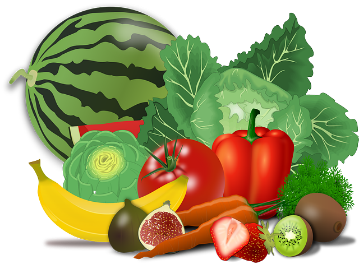 It’s the beginning of fall and apple picking season is in full effect. And the place to be is Clearview Orchards.
It’s the beginning of fall and apple picking season is in full effect. And the place to be is Clearview Orchards.
Organic Fuji and Gala apples are specialties of Clearview Orchards, although they also offer a number of other apple varieties.
Bring your family and your picnic basket. Once you are done enjoying a picnic on our lawn, feel free to pick your own apples. Other delicious items you can pick up at Clearview:
- Honey.
- Pumpkins (we have red, white, or pink)
- Dried lavender
- Apple cider
- Apple pops
Want a getaway? We can do that too. We offer a luxury yurt that boasts such amenities such as a queen bed, a full kitchen, sofa, and full bath with shower. The yurt is centrally located amongst lavender fields, flower gardens, avocado, and Fuji trees. An array of wildlife including deer, coyotes, raccoons, and hawks can be viewed from the yurt. This would be a perfect getaway for you and your partner looking for a romantic country getaway.
What: Clearview Orchards for picnicking and apple picking
Where: 646 Trabing Road in Watsonville
When: Saturday and Sundays from 10:00 am-5:00 pm through Sunday, October 26th.
Cost: $2 a pound for apples
Who: Everyone!
Content provided by Transformer Marketing.
Sources: https://www.airbnb.com/rooms/3111208?s=QpQT and http://www.clearvieworchards.com/index.html
Read more
 It happens all the time. You go to the grocery store to load up on vegetables only to find when you cut into them, that they are rotten. Do you wanna know how to avoid that from happening again? Follow these simple tips when buying vegetables.
It happens all the time. You go to the grocery store to load up on vegetables only to find when you cut into them, that they are rotten. Do you wanna know how to avoid that from happening again? Follow these simple tips when buying vegetables.
Asparagus is best purchased in the spring. The tips should be closed and compact. The stems should go be green.
Beets are one of the vegetables that you can get all year around. Good beets would be rich in red color and be firm and round.
Brussel Sprouts are best between October and December, but you can still find good ones 10 months out of the year. Good ones won’t have any bruising or blemishing, be firm, and rich in green color.
Carrots are available all year long. A firm carrot will be smooth and well formed. The tops should be green in color.
Celery is available all year long. A glossy surface and green leaflets are tell-tale signs of healthy celery.
Corn is available all year long with the best time for corn is May-September. Green husks and plump kernels are the best way to tell if your corn is going to be good.
There are no bad times to buy lettuce, mushrooms, or onions. But in order to get the cream of the crop you have to look out for healthy and vibrant leaves on lettuce, Caps should be white or brown consistently throughout the mushroom, and onions should be firm with dry necks.
Next time you are at the grocery store, you’ll know what to look for when purchasing your favorite vegetables.
Content provided by Transformer Marketing.
Source: http://www.mindbodygreen.com/0-15388/how-to-pick-out-perfect-vegetables-infographic.html?utm_campaign=recommendation&utm_medium=popular&utm_source=feature
Read more
 In most aspects of life there exists insurance to help in protecting assets in the case of damage or unfortunate loss. When it comes to farms this is no exception; however, the typical business insurance or ordinary car insurance will not meet the bar when it comes to insuring the farm and tractors. It is advisable that if your business is farming or you are thinking about purchasing a weekend farm getaway that you consult with an insurance professional with experience in farming.
In most aspects of life there exists insurance to help in protecting assets in the case of damage or unfortunate loss. When it comes to farms this is no exception; however, the typical business insurance or ordinary car insurance will not meet the bar when it comes to insuring the farm and tractors. It is advisable that if your business is farming or you are thinking about purchasing a weekend farm getaway that you consult with an insurance professional with experience in farming.
There is a famous saying that “knowing is half the battle,” so our goal is to review a few areas that have specific insurance needs. This way when you meet with an insurance professional you can get on the right track. As a general rule farm property is covered under specifically qualified policies to include farm machinery, livestock, farm trailers and even irrigation equipment. Depending on the coverage there may even be automatic coverage for new equipment up to $100,000 for the first 60 days – similar to a new born child being under the parents insurance until the child is individually registered. There are other types of equipment such as antennas and satellite radio devices typical on farms in extremely rural areas. In addition to coverage for these types of items there are other optional coverages that should be considered.
Depending on the exact type of farm things like chicken coups, silos, fences and feed racks have the ability to be covered under a farm policy. For those living in the city the details of a chicken farm and the equipment to keep it functioning are just not a reality. However for the farmer, these are essential aspects to their daily life. This is precisely why insurance companies carefully address all the details involved in farm life. Additional coverages are even defined as to the type of use of the equipment, because farm life can vary drastically.
One of our insurance professionals will review your farm and equipment to explain all available coverages and its intricacies.
Content provided by Transformer Marketing.
Read more
 One of the most troublesome environmental issues is water shortage. As the population increases, industries develop, and weather patterns change, the issues of water shortage become more prevalent. The agricultural industry requires a tremendous amount of water to operate and it is in the top industries for water consumption. Everyone knows that crops require soil, sun, and water. In some cases of hydroponics soil in not even utilized, it is solely reliant on water. Since an industry is hinged upon the variable of the existence of water, the insurance industry has developed a form of protection for those in the agriculture industry – agricultural insurance.
One of the most troublesome environmental issues is water shortage. As the population increases, industries develop, and weather patterns change, the issues of water shortage become more prevalent. The agricultural industry requires a tremendous amount of water to operate and it is in the top industries for water consumption. Everyone knows that crops require soil, sun, and water. In some cases of hydroponics soil in not even utilized, it is solely reliant on water. Since an industry is hinged upon the variable of the existence of water, the insurance industry has developed a form of protection for those in the agriculture industry – agricultural insurance.
Crops are the predominate victim in a water shortage and depending on the crop will determine the sensitive to water issues. Farmers should immediately discuss the specifics of crop insurance to account for potential water shortage issues. Typically, the farmer must select the percentage of the crops covered and at a specific price point. A common range can vary from 50% – 85% of a crop. In order to meet necessary criteria for each crop, there are guidelines specific to time of year, type of crop, and deadlines to applying to obtaining coverage. This is a simple process, but because there are many intricacies it is always advisable to connect with and insurance expert to help navigate individual needs.
The reason for the many variations and deadline surrounding crops is directly connected to the federal laws and regulations that spearheaded the industry to protect farmers and food protection in the United States. Some of the information that is weighed when obtaining the right coverage for water shortage risk are things like the type of harvest, production history, yield, and environmental history. These factors are important in determining type of policy and when reporting of water shortage damage. A specific accounting and log of crop damage is vital to maintaining in line with an agricultural policy, due to the already sensitive nature of crops.
Don’t make the mistake at going at this alone. Contact one of our agents today.
Content provided by Transformer Marketing.
Read more
 The California drought has gotten out of control. That is why a private company stepped up and paid $1 billion for a new desalination plant located in Carlsbad.
The California drought has gotten out of control. That is why a private company stepped up and paid $1 billion for a new desalination plant located in Carlsbad.
The drought has really impacted Southern California within this last year, however, the drought has been drying up some parts of California for years.
What is desalination?
Basically, it’s a sifting process which removes salt and other minerals from salt water that is retrieved from the sea. This process will make the water safe for drinking and irrigation. Desalination is a more expensive process to provide potable water.
Alternatives
There are alternative methods to providing drinking water which are less expensive than desalination. The methods include ground water, which is obtaining drinking water from natural resources including rivers, lakes, and even digging underground for water.
Another method is water recycling. In Orange County, California, water recycling is underway. Since 2008, Orange County has provided residents with billions of gallons of potable water from the recycling facility. By 2015, Orange County will be providing an additional 30 million gallons per day, all thanks to their expansion efforts.
The drought in California has gotten so bad that even wells in Bakersfield, have run dry.
Content provided by Transformer Marketing.
Sources: http://en.wikipedia.org/wiki/Desalination and http://www.slate.com/articles/technology/future_tense/2014/06/desalination_vs_purification_why_californians_will_soon_drink_their_own.html
Read more
Agribusiness Insurance protects not only your farm in Phillipsburg, KS, but it also provides peace of mind for your shareholders and other individuals or entities that may hold interest in your company. Insurance for your agriculture business protects not just you, but also anyone else who might have an interest in your farming business.
Having a crucial piece of machinery break down or the sudden onset of inclement weather can affect your business. If you have commercial insurance coverage with Scurich Insurance in Watsonville, you can reduce the chances of disaster having a negative impact on your cash flow.
Some types of coverage that can help your agribusiness include the following:
• Should an interruption occur in your cash flow, Income Loss coverage could help you recover some of your revenue.
• Some farm owners give tours of their farm or give hay rides to supplement their income. Agritainment liability will protect you in the event of an injured guest. Custom equipment and tractors can be covered with an Equipment Floater.
• If one of your workers should get injured on the job, Workers’ compensation will give much needed protection.
• Should a critical piece of machinery break down, Mechanical Breakdown coverage will add to your protection.
Call Scurich Insurance Services at 1-800-320-3666 today and find out how you can protect your agribusiness.

Scurich Insurance Services has proudly served the Monterey Bay area since 1924. Scurich will take care of all of your insurance needs. Are you a business owner, did you get a new car or maybe you are looking to protect your family in the event of a tragedy? Give us a call, we can help!
We are located at:
Scurich Insurance Services
320 East Lake Avenue, PO Box 1170
Watsonville, CA 95077-1170
Office: 1-831-722-3541
Toll Free: 1-800-320-3666
Read more
 It’s the beginning of fall and apple picking season is in full effect. And the place to be is Clearview Orchards.
It’s the beginning of fall and apple picking season is in full effect. And the place to be is Clearview Orchards.
 It happens all the time. You go to the grocery store to load up on vegetables only to find when you cut into them, that they are rotten. Do you wanna know how to avoid that from happening again? Follow these simple tips when buying vegetables.
It happens all the time. You go to the grocery store to load up on vegetables only to find when you cut into them, that they are rotten. Do you wanna know how to avoid that from happening again? Follow these simple tips when buying vegetables. In most aspects of life there exists insurance to help in protecting assets in the case of damage or unfortunate loss. When it comes to farms this is no exception; however, the typical business insurance or ordinary car insurance will not meet the bar when it comes to insuring the farm and tractors. It is advisable that if your business is farming or you are thinking about purchasing a weekend farm getaway that you consult with an insurance professional with experience in farming.
In most aspects of life there exists insurance to help in protecting assets in the case of damage or unfortunate loss. When it comes to farms this is no exception; however, the typical business insurance or ordinary car insurance will not meet the bar when it comes to insuring the farm and tractors. It is advisable that if your business is farming or you are thinking about purchasing a weekend farm getaway that you consult with an insurance professional with experience in farming. One of the most troublesome environmental issues is water shortage. As the population increases, industries develop, and weather patterns change, the issues of water shortage become more prevalent. The agricultural industry requires a tremendous amount of water to operate and it is in the top industries for water consumption. Everyone knows that crops require soil, sun, and water. In some cases of hydroponics soil in not even utilized, it is solely reliant on water. Since an industry is hinged upon the variable of the existence of water, the insurance industry has developed a form of protection for those in the agriculture industry – agricultural insurance.
One of the most troublesome environmental issues is water shortage. As the population increases, industries develop, and weather patterns change, the issues of water shortage become more prevalent. The agricultural industry requires a tremendous amount of water to operate and it is in the top industries for water consumption. Everyone knows that crops require soil, sun, and water. In some cases of hydroponics soil in not even utilized, it is solely reliant on water. Since an industry is hinged upon the variable of the existence of water, the insurance industry has developed a form of protection for those in the agriculture industry – agricultural insurance. The California drought has gotten out of control. That is why a private company stepped up and paid $1 billion for a new desalination plant located in Carlsbad.
The California drought has gotten out of control. That is why a private company stepped up and paid $1 billion for a new desalination plant located in Carlsbad.